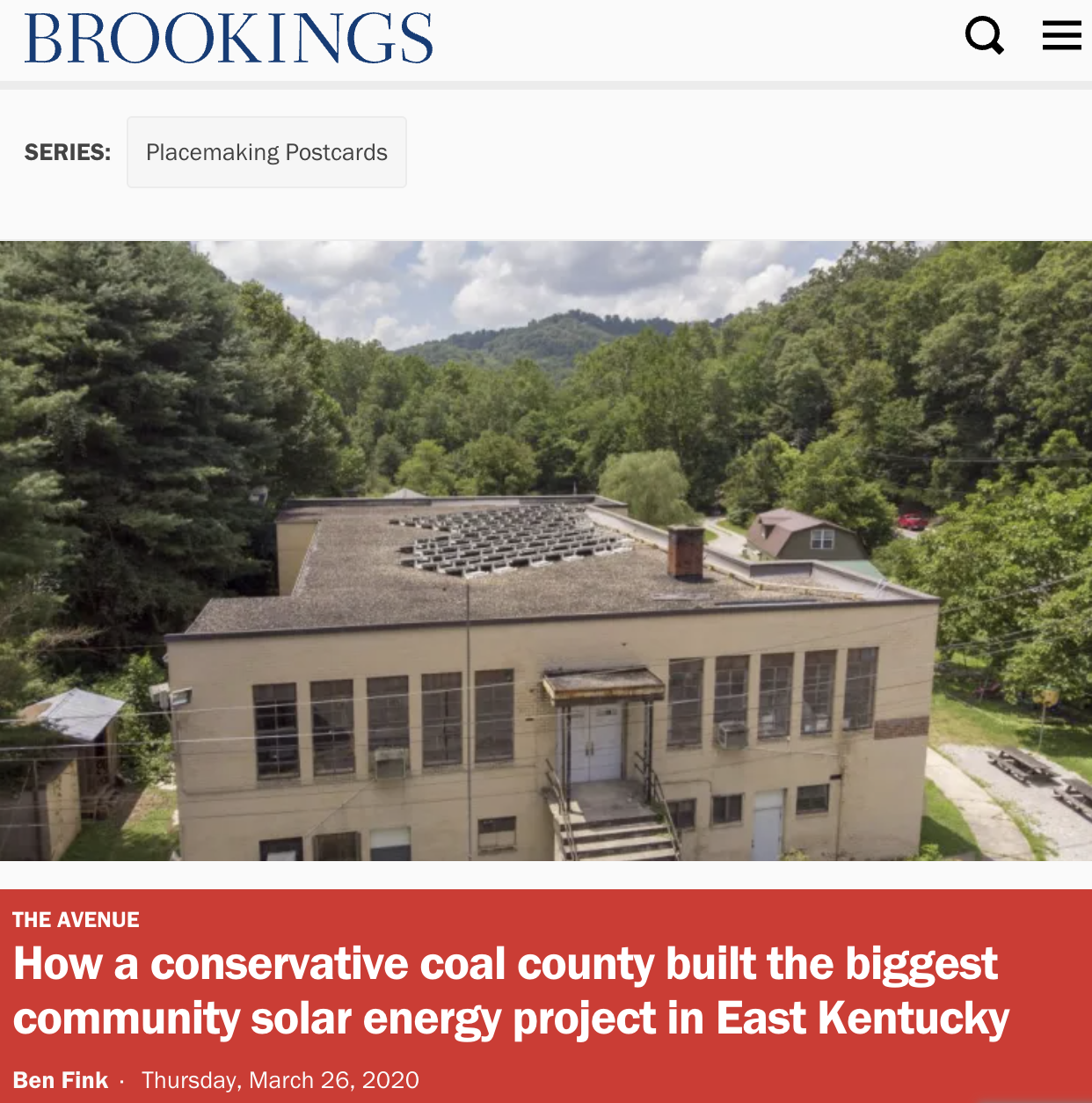How a conservative coal county built the biggest solar energy project in East Kentucky
Ben Fink, community organizer and series edtitor, March 26, 2020
In Letcher County, Ky., where coal mines once boomed and talk about the “war on coal” is commonplace, environmentalism isn’t particularly popular. During my four years working and organizing here, I have heard plenty of skepticism about climate science.
But last year, our county’s grassroots groups (organized into a collective network known as the Letcher County Culture Hub) completed the biggest nonindustrial alternative energy project in the history of the east Kentucky coalfields. After three years of organizing, the network successfully secured an investment of half a million dollars in four solar-powered community buildings.
In a place widely considered “Trump country,” this might seem surprising. But with an understanding of our local commitment to grassroots-led, culture-driven development work, you can see why it makes sense.
CHANGING THE NARRATIVE
Letcher County is located in Kentucky’s fifth Congressional district, which has long lingered near the bottom of national rankings for health and wealth resulting from generations of exploitation of the region’s land and laborers. This private extraction by national and multinational businesses has been accompanied by a media narrative casting Appalachian residents as ignorant, backward, and hateful, or as helpless recipients of government aid.
Appalshop—the worker-run nonprofit that initiated the Letcher County Culture Hub—produces home-grown films, theater, music, radio, and other art that tells a different story. In sharp contrast to the poverty-based narratives that have long defined Appalachia, Appalshop tells stories of resourceful communities working through hardship to build a “cooperative commonwealth” where residents work together to fulfill their needs and wants, where everyone’s worth is affirmed, and where—as an inclusive community—we own what we make.
Our work goes beyond making media. We work alongside partners from the Deep South to the South Bronx to turn our approach to storytelling into a new method of community-based cultural work, organizing, and wealth creation—what we call Community Cultural and Economic Development (CCED). Unlike standard approaches to development, CCED starts not with a community’s problems, but with its common values, traditions, and desires.
The solar energy project was born from this approach, demonstrating how CCED can leverage communities’ cultural strengths to address common challenges and seize new opportunities.
